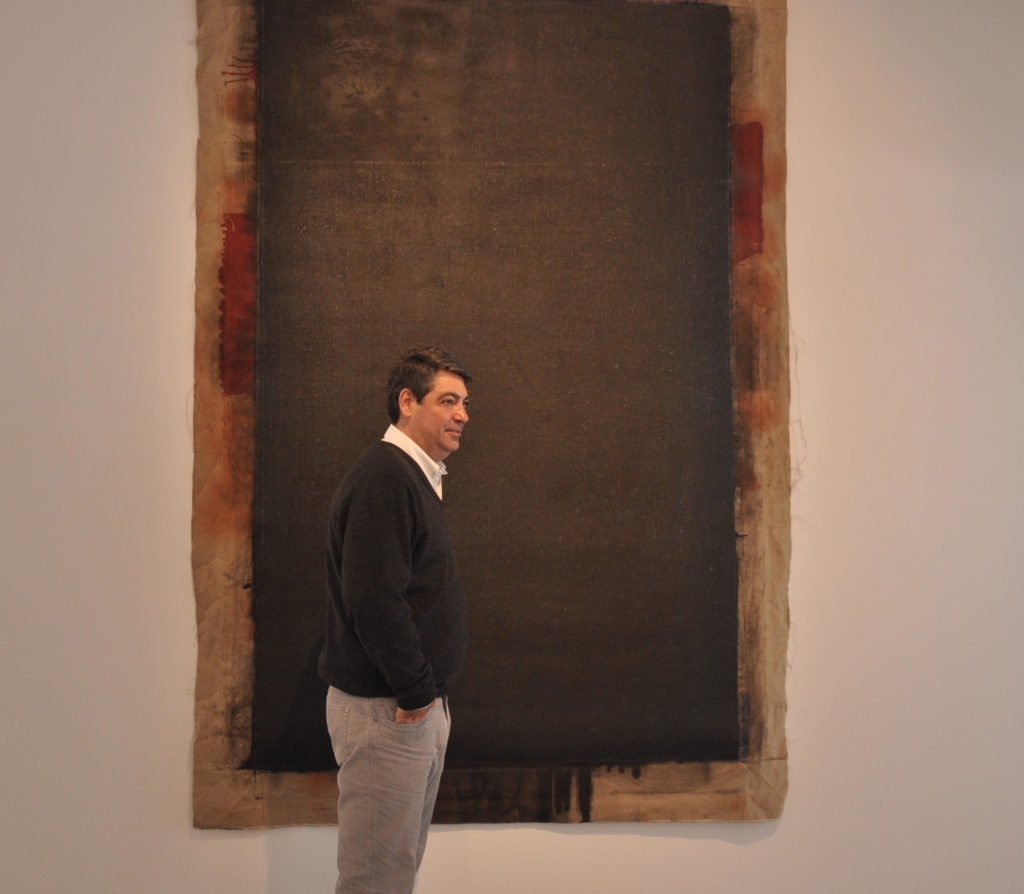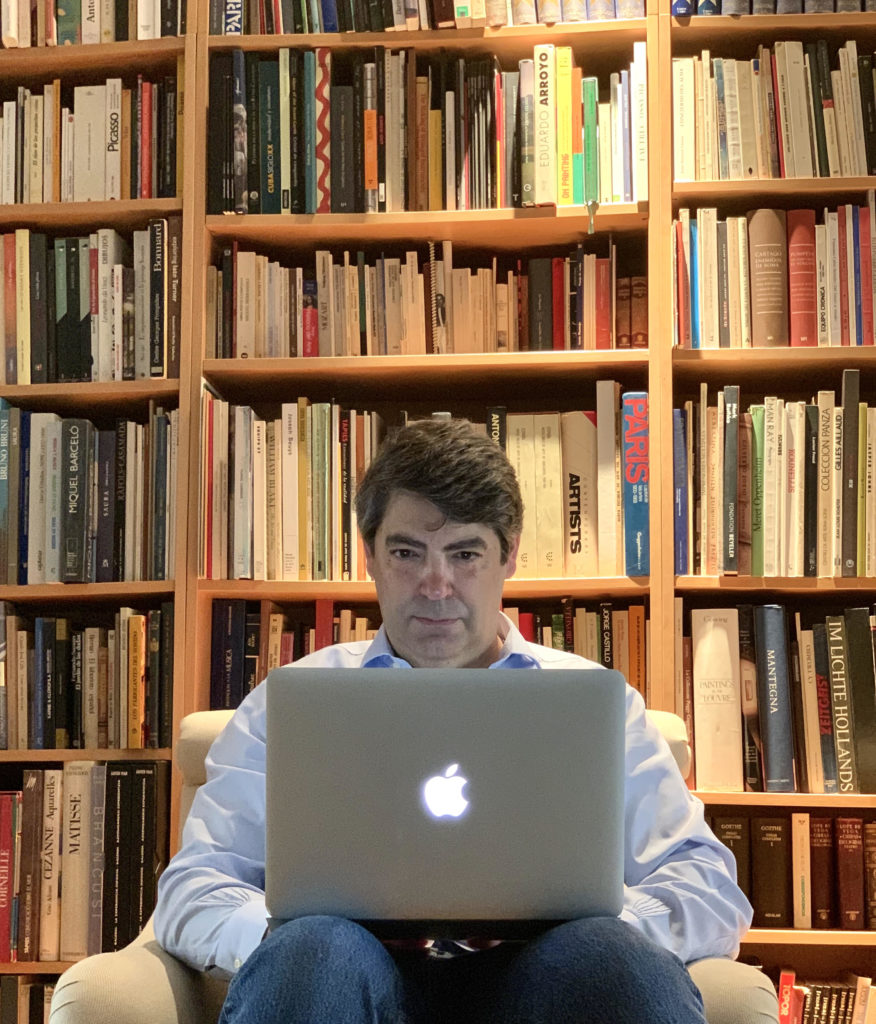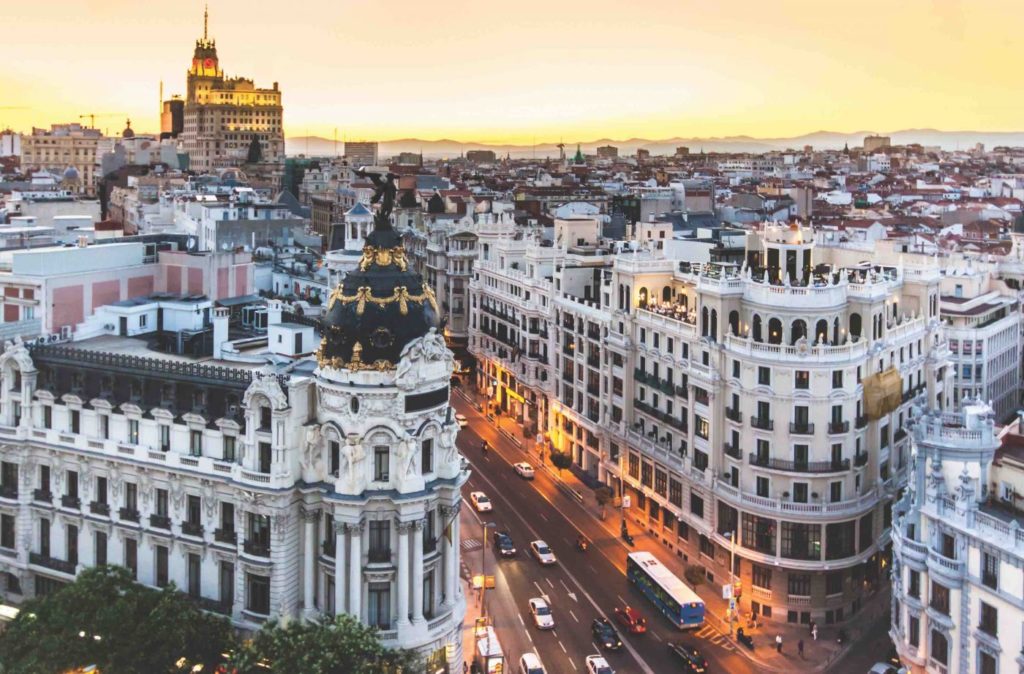‘Post-Crisis Periods of Art Have Historically Been Very Brilliant’: Madrid Gallerist Álvaro Alcázar Takes the Long View on the Spanish Art Market


Sophie Neuendorf

Dare we be hopeful? Though the world is collectively being forced to come to terms with a somewhat daunting new reality Madrid-based gallerist Álvaro Alcázar says there is a positive side to be found in every situation. Having learned the most valuable business practices and knowledge growing up in the midst of his mother’s gallery, Alcázar has adeptly segued an old-school savoir-faire into a thoroughly contemporary business, with his Galeria Álvaro Alcázar. Now in the midst of the global health crisis and an unprecedented economic freeze, the perenially upward-looking gallerist sees silver-linings.
Recently, we sat down with Alcázar, who shared his thoughts on the path forward.

Madrid-based gallerist Álvaro Alcázar has canceled his gallery’s upcoming programming but, instead, is busy working on special projects.
Times of social unrest and upheaval have, historically, been well-documented by artists of the time. How do you think artists will respond to this unique time in history?
We try to think positively about this issue. Post-crisis periods of art have historically been very brilliant. Great artists from our recent history have emerged after periods of crisis. Abstract Expressionism, for example, emerged after the Second World War and has left us a huge legacy in modern art history.
Many galleries have had to postpone their exhibitions and projects or move them online. Do you think this is a good moment to transition more of the art business online now and for the future? Such as Art Basel’s virtual fair, Zwirner’s viewing room, or Artnet’s online auctions?
Indeed, the online art business has been growing significantly in the past decade, though, in the end, collectors very often need to see the piece before acquiring it. However, there is no doubt that social media and the online art trade are a new and exciting avenue for the art market, one which is going to increase their presence and profitability.
You’re based in Spain. How is the art market dealing with the ripple-effects of COVID-19?
It is going to have a very deep impact on our economy and, thus, on the art market. However, art has also played a key role during our quarantine, as a constant source of intellectual stimulus and amusement during this difficult time of our lives. We hope that, due to the unfortunate delay in the reopening of many leisure businesses, people will come and visit the art galleries even more often than they did before. Art has been newly discovered as well as rediscovered for many people during these days.
You come from a family of gallerists. This experience, growing up, must have been incredible. How has this impacted the way you think of art and run your gallery?
The art industry has changed a lot since I worked as a messenger in my mother’s gallery, many years ago. After that, I worked with Carmen Gamarra, as her gallery director, until her death 18 years ago. It is a very different business since 1979; globalization, the internet, and social media have had a massive impact.
However, I believe that my mother’s old school savoir-faire gave me a strong base, instinct, and knowledge to stay in this business over the years.

Madrid has been hard hit by the coronavirus, shuttering many galleries and museums.
Do you believe that collectors in Spain are open to trying these new ways of experiencing and collecting art?
We don’t have a tradition of buying from catalogues as, for example, our American counterparts do. But there is no doubt that this system will have more and more importance in our market. It’s happened in other sectors already, such as fashion, travel, entertainment …
You are planning a special exhibition of works created during this lockdown?
At the moment, we are working on two incredible projects. For one, entitled “Mi Casa” we asked artists to create works with timely messages about the need to stay at home. These images can be seen on our Instagram page, where we are getting a lot of positive feedback. We’re thinking of producing a catalogue with all the works after the quarantine is over — to be able to show this contemporary experience through the eyes of our artists to posterity.
The second project is with acclaimed artist Juan Garaizabal, who installed a work at the Westin Palace Hotel in Madrid. The sculpture includes a fragment of New York’s lost Penn Station, and the essence of “Time” is a focal point. They closed the hotel for the COVID-19 crisis, but the work stayed displayed in the cupola, as a symbol of isolation. We’re working on an auction of this very unique and timely piece, with the proceeds used to assist organizations in Madrid affected by the pandemic.
Let’s be optimistic and imagine that we can go back to normality this autumn. What projects do you have planned for that time?
Actually, I canceled everything until I see how this situation develops and what we can do. I’ll have to reschedule all the exhibitions and projects and then I will see what we can do next season.
What artworks do you wish you had bought when you had the chance?
In 1998 we mounted an Ed Ruscha exhibition at the gallery, the prices at that point were still reasonable. A few months later, the prices for Ruscha increased dramatically! We had works on canvas and on paper, it was a fantastic exhibition! Some of our collectors purchased amazing pieces, including the Reina Sofia Museum. Unfortunately, I didn’t keep one for myself.
If you could have dinner with any three artists, living or dead, who would you choose?
Salvador Dalí, Andy Warhol, and Eduardo Arroyo, because they all have complex minds, are very creative, fun, and intelligent. The resulting conversation between them would be something incredible.